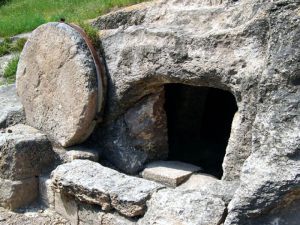 I’ve been a musician almost my entire life. From singing in the children’s choirs at church and school and Sunday School, to attempting to learn and play guitar and banjo, to my time singing in the collegiate touring chamber group, I’ve enjoyed making and listening to excellent music. In that time also, I’ve spent much of it writing and reading, another of my favorite pastimes. So it should come as no surprise that I like to sing hymns from the hymnal. It’s a collection of wonderful, descriptive texts set to fulfilling music. I sing them to my children. I belt them out from the pew in church. I like to sit quietly and contemplate the words and the Scriptures behind the music.
I’ve been a musician almost my entire life. From singing in the children’s choirs at church and school and Sunday School, to attempting to learn and play guitar and banjo, to my time singing in the collegiate touring chamber group, I’ve enjoyed making and listening to excellent music. In that time also, I’ve spent much of it writing and reading, another of my favorite pastimes. So it should come as no surprise that I like to sing hymns from the hymnal. It’s a collection of wonderful, descriptive texts set to fulfilling music. I sing them to my children. I belt them out from the pew in church. I like to sit quietly and contemplate the words and the Scriptures behind the music.
One of the hymns that grabbed my attention earlier this year was “No Tramp of Soldiers’ Marching Feet,” LSB 444. It’s a particular passage in the second verse that I found myself especially proud to sing. “Or else the very stones would cry/‘Behold, behold your King!’”
This is, of course, a Holy Week hymn, set to be used during Palm Sunday, as we hear of our Lord’s Triumphant Entry into Jerusalem. The hymn’s text is from Luke 19:36-40, where Jesus’, as He rides on a colt into the city, is admonished by the Pharisees to have the people stop praising Him. The crowds had, as Jesus passed by, thrown down their cloaks, waved palm branches, and shouted, “Blessed is the King who comes in the name of the Lord! Peace in heaven and glory in the highest!” These were the same praises sung at the other bookend of His earthly life, as the heavenly hosts told the shepherds of His birth. Jesus knew, as we do now, that these crowds could not, would not, be silent. They had seen the Savior, the one spoken of by Simeon in the temple, when Jesus first traveled to Jerusalem as an infant. Here He is again, on His way to back Jerusalem, to the temple even, but this time, instead of a sacrifice by His parents for cleansing at His birth, He would be the sacrifice for the cleansing of all through our own rebirths by water and the Spirit.
It’s no wonder, then, that Jesus tells the Pharisees, “I tell you, if these were silent, the very stones would cry out.” And His words were proven true less than a week later. For you see, after that entry in triumph to the earthly city of Jerusalem, it was Christ’s eternal triumph over death and sin that caused those stones to cry out, to declare the majesty of the Son of God. Matthew 27:47b, “And the earth shook, and the rocks split.” The earth could not keep silent at the victory of Jesus and the crushing of the head of the serpent. And still, there was to be one final demonstrative act by the earth, as the stone was rolled away, and the great maw of the earth, the tomb entrance, was laid open as a mouth shouting out the resurrection of our Lord and the Last Words of Christ,
“It is finished!”
Amen.